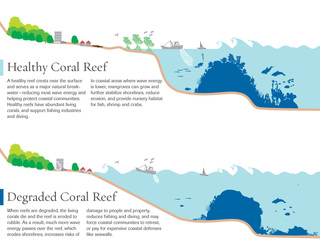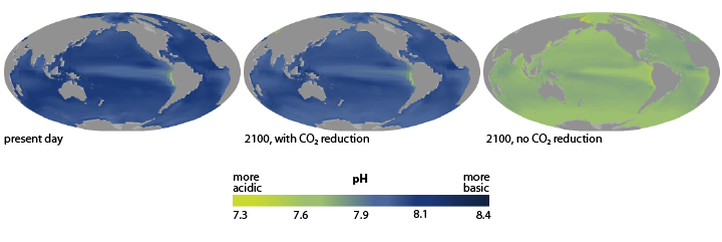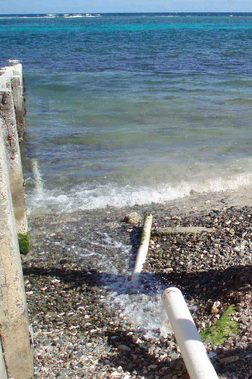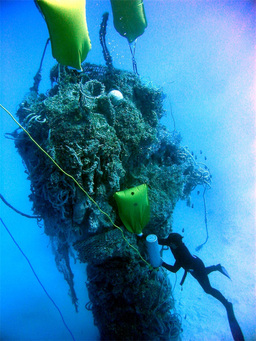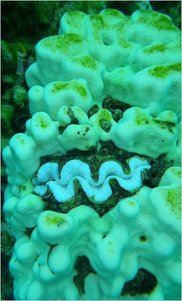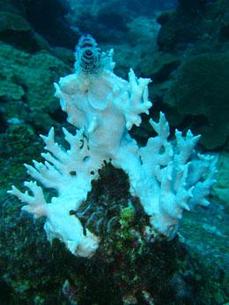Coral Reefs
“There is no way out, no loopholes. The Great Barrier Reef will be over within 20 years or so. Once carbon dioxide had hit the levels predicted for between 2030 and 2060, all coral reefs were doomed to extinction. They would be the world’s first global ecosystem to collapse. I have the backing of every coral reef scientist, every research organization. I’ve spoken to them all. This is critical. This is reality.” ~Charlie Veron, World Renowned Coral Reef Specialist
|
A major 23-author science paper published in Science, states the world’s oceans may be turning acidic faster today from human carbon emissions than they did during four major extinctions in the last 300 million years, when natural pulses of carbon sent global temperatures soaring. Learn more.
|
"Since I started diving in the 1960s up to 50% of the world's coral reefs have been lost. The remaining reefs are either severely threatened or dying and we may lose them all before 2050 - unless we act now." ~David Hannan, Diver & Cinematographer, Ocean Ark Alliance
"Coral reefs provide protection and shelter for many different species of fish. They are very important in controlling how much carbon dioxide is in the water and protect coasts from strong currents and waves by slowing down the water before it gets to the shore, hence the term "barrier reefs." Reef fish and mollusks feed 30-40 million people every year and are a crucial source of income. Without coral, the amount of carbon dioxide would rise drastically and that would affect all living things on Earth." ~Ted Danson, Oceana The Great Barrier Reef lost half its coral in the past 27 years. Learn more.
|
|
|
Properly managed, coral reefs can yield an average 15 tons of fish and other seafood per square kilometer per year. Learn more.
|
A new report from the International Union for Conservation of Nature (IUCN) finds that there is just 8% of live coral cover on Caribbean reefs on average, compared to more than 50% in the 1970s. Learn more.
|
|
"Coral reefs provide protection and shelter for many different species of fish. They are very important in controlling how much carbon dioxide is in the water and protect coasts from strong currents and waves by slowing down the water before it gets to the shore, hence the term "barrier reefs." Reef fish and mollusks feed 30-40 million people every year and are a crucial source of income. Without coral, the amount of carbon dioxide would rise drastically and that would affect all living things on Earth." ~Ted Danson, Oceana See Also: 2012 World Risk Report
|
|
"Pollution, overfishing and overuse have put many of our unique reefs at risk. Their disappearance would destroy the habitat of countless species. It would unravel the web of marine life that holds the potential for new chemicals, new medicines, unlocking new mysteries. It would have a devastating effect on the coastal communities from Cairns to Key West, Florida -- communities whose livelihood depends upon the reefs." ~Former U.S. President Bill Clinton
|
Last Revised: 11/20/13
Commenting Rules |

